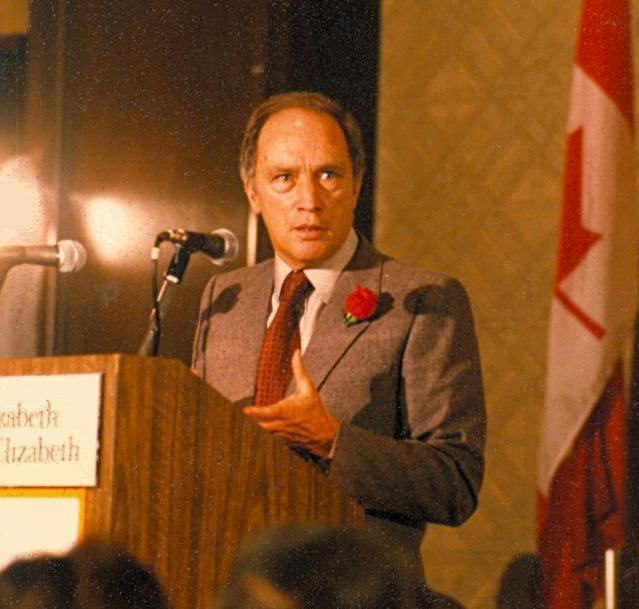- The Constant Liberal: Pierre Trudeau, Organized Labour, and the Canadian Social Democratic Left
- UBC Press (2018)
We live in an age of celebrity politicians. Some become celebrities in some part because they seem politically unlikely, like Barack Obama becoming the first black president, or Alexandria Ocasio-Cortez going from tending bar to the U.S. House of Representatives, or reality-TV star Donald Trump — or Pierre Elliot Trudeau, who seemed far too intellectual and bohemian to run a country like Canada.
When you’re famous for being famous, what you actually accomplish tends to be less interesting than your extreme moments. We recall Pierre Trudeau’s use of the War Measures Act during the October crisis and his turbulent marriage at least as much as the patriated constitution and the Charter of Rights.
This new book by Christo Aivalis, however, focuses on Trudeau’s political philosophy and how he expressed it in legislation. From that perspective he seems much less a philosopher-king and far more an astute politician who was further to the right than he seemed. Moreover, Aivalis shows how Trudeau paved the way for modern neoliberalism — which he did not much like at all.
In 1950s Quebec, Trudeau must have seemed a political oddity: Jesuit-educated, wealthy enough to subsidize the magazine Cité Libre as a vehicle for his opinions, and a strong supporter of trade unions against the ham-handed government of Maurice Duplessis. The Cooperative Commonwealth Federation, soon to become the New Democrats, was hopelessly Anglophone and had made little progress with Quebec workers. Trudeau looked to the CCF like a godsend, thinking he could not only build the movement in the province but also perhaps become its national leader.
Aivalis shows that Trudeau was already a firm liberal in his politics, though not yet a Liberal. He supported capitalism but believed that working-class Canadians would be essential in preserving it. Their weakness in the face of the reactionary-liberal Duplessis regime meant that Quebec was stagnant compared to the rest of Canada. Eventually, Trudeau worried, workers would reject altogether any liberal system that ignored their interests.
Labour as ‘instrument’
So he wanted to strengthen unions and workers in general — up to a point. It wasn’t to help the workers; it was to use them “instrumentally,” to rescue liberalism from the dead end of the Duplessistes and right-wing Liberals and Progressive Conservatives in the rest of Canada. Otherwise, labour would move left again, back to its 1930s socialism.
Aivalis pays no attention to Trudeau’s foreign policy or his battles with the Tories; his focus is on Trudeau’s relationship with the labour movement, the socialists of the CCF, and the social democrats of the NDP. He extensively cites articles and editorials in union publications, and debates among the New Democrats. Trudeau clearly understood them, better than they understood him: NDP leader David Lewis, remembering his support for the minority Liberals between 1972 and 1974, said: “…at the end we got screwed. When you are trying to influence Trudeau, you have to remember that possibility.”
Lewis had agreed to policies like the National Energy Program, which seemed to offer stable oil prices when the Saudis were driving the price of oil to unheard-of levels. Instead, those policies backfired by infuriating Albertans, who thought they’d been robbed of windfall royalties. The program put the Liberals (and the NDP) out of the running in Alberta for decades.
Similarly, Trudeau mocked Tory leader Robert Stanfield’s promise of wage and price controls in a time of soaring inflation, won the election with working-class votes, and promptly brought in wage and price controls. Labour and the NDP were furious because they’d been led to hope for “tripartism,” whereby workers, corporations, and the government would be equal partners. Instead, Trudeau cast unions as the greedy drivers of inflation and locked down their wages while the corporations found loopholes. Worse yet, the Charter was adopted without any guarantees of social or labour rights.
In step with the neoliberals
While presenting himself as an offbeat liberal, Trudeau was actually in step with the neoliberal takeover led by Margaret Thatcher and Ronald Reagan. The labour movement was branded as a bunch of selfish jerks (especially the public servants) while “free enterprise” was extolled as the guarantor of prosperity. Trudeau helped set the stage for provincial right-wingers like the Bill Bennett Socreds to roll back workers’ income and rights.
But as Aivalis describes the consequences, these were Pyrrhic victories. Brian Mulroney’s Tories moved swiftly to free trade, which Trudeau had opposed. In 1990, amid the Western triumphalism after the fall of the Berlin Wall and the collapse of the Soviet Union, he publicly noted that capitalism had likely killed as many millions as communism.
And what was more, he prophetically warned that naked capitalism had “produced more misery for the underclasses, more health hazards for the community, more drugs and crime for the cities, more carbon dioxide for the greenhouse effect, more depletion of the ozone layer, more destruction of rain forests and genetic varieties.”
Aivalis finds Justin Trudeau very much like his father: politically able to “hamstring” the NDP by attracting left-wing voters and then disappointing them by reneging on his promises (proportional voting) and taking labour-hostile measures (legislating an end to the postal workers’ strike).
“Ultimately,” he concludes, if it truly is ‘like father, like son,’ Canadians on the left might be wise to prepare for years, if not a generation, of deep disappointment.” ![]()

















Tyee Commenting Guidelines
Comments that violate guidelines risk being deleted, and violations may result in a temporary or permanent user ban. Maintain the spirit of good conversation to stay in the discussion.
*Please note The Tyee is not a forum for spreading misinformation about COVID-19, denying its existence or minimizing its risk to public health.
Do:
Do not: